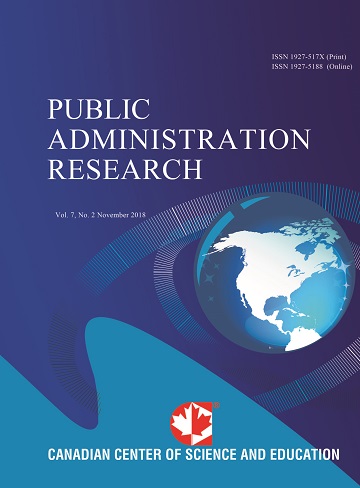Special Education Management and Formalism in Inclusive Public Policies: The Case of Brazil
- Bruno Américo
- Fagner Carniel
- Adriana Takahashi
Abstract
The idea of inclusive education has gained prominence in the ideological context of modern Western democracies. Thus, this analysis focuses on the understanding of how the Brazilian inclusive education has been managed from the Decree-Law n° 6.571/2008, which was repealed on November 17, 2011, considering the formalism perspective. Formalism is taken as a perspective of analysis of the inclusive public policies, which allows us to question the apparent stability and uniformity of institutional practices and discourse of the national administration. The work´s approach is largely qualitative, and uses multiple methods. Two steps were taken, starting with all the Brazilian State Boards of Education (survey research), and concluding with the Rio Grande do Norte State Board of Education and one of its school (case study). Data was collected through documental research and interviews with key actors, and analyzed by content analysis. It was found that, despite the legal pressure on the environment to an isomorphism of practices among State Boards, there are peculiarities among them, justified by the contextual and cultural aspects that are shared by actors and organizations. In the specific case study of the Rio Grande do Norte State Board of Education, it was concluded that the formalistic practice allows questioning the effectiveness of the official knowledge policies and its other form of narrative that regards not only the special education, but the very plurality of logical and social experiences. From a theoretical point of view, the study has called attention to the presence of formalism in special education administration.
- Full Text:
 PDF
PDF
- DOI:10.5539/par.v1n1p72
Journal Metrics
h-index (2017): 7
i10-index (2017): 6
h5-index (2017): 7
h5-median (2017): 13
Index
- CNKI Scholar
- COPAC
- CrossRef
- DTU Library
- EBSCOhost
- EuroPub Database
- Excellence in Research for Australia (ERA)
- Genamics JournalSeek
- Ghent University Library
- Google Scholar
- Harvard Library
- Infotrieve
- Jisc Library Hub Discover
- LOCKSS
- Mir@bel
- Norwegian Centre for Research Data (NSD)
- Open J-Gate
- PKP Open Archives Harvester
- Publons
- ROAD
- Scilit
- SHERPA/RoMEO
- Stanford Libraries
- Ulrich's
- UniCat
- Universe Digital Library
- UoS Library
- WorldCat
Contact
- Gabriel TaiEditorial Assistant
- par@ccsenet.org
